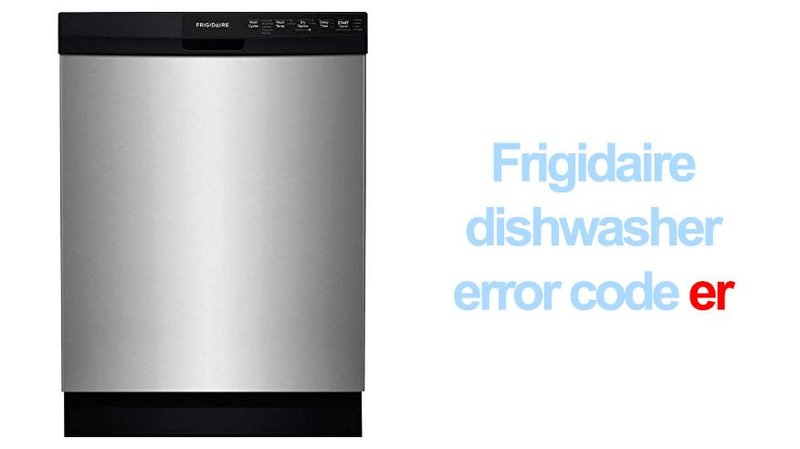
So, what does this cryptic message mean? In the simplest terms, Error Code HE is a signal that your dishwasher’s heating element is malfunctioning. The heating element is the component responsible for warming up the water during the wash cycle and then drying the dishes afterward. If it’s not working properly, your dishwasher won’t perform at its best. Kind of like trying to make a hot cup of coffee without turning on the kettle—things just won’t heat up!
Understanding the Role of the Heating Element
The heating element in your dishwasher is akin to the heart in your body. Just as your heart pumps blood to keep everything functioning smoothly, the heating element ensures the water reaches the right temperature for optimal cleaning. Without hot water, your dishes won’t come out as clean, and you might find water spots or even food residue left behind. More importantly, the drying cycle won’t be as effective, leaving everything damp and less than pristine.
In a Frigidaire dishwasher, the heating element works in tandem with other components like the thermostat and temperature sensor to maintain the perfect conditions for a sparkling clean. The thermostat monitors the water temperature, and if it dips too low, it sends a signal to the heating element to power up and warm the water. If this delicate balance is disrupted, say by a faulty heating element, it can trigger the HE error code. It’s like a finely tuned orchestra where each instrument needs to hit the right notes at the right time.
Addressing this error is crucial not just for dish cleanliness, but also because prolonged issues could lead to higher energy consumption. A malfunctioning heating element can cause your dishwasher to run longer than necessary, using more power and potentially leading to higher electric bills. Therefore, understanding and fixing the HE error is not only important for sanitary reasons but also for keeping your utilities in check.
Common Causes of the HE Error Code
You might be wondering, “What causes the heating element to fail?” There are several potential culprits, and pinpointing the exact one can sometimes feel like a detective game. Common causes include a broken heating element, a blown fuse, or a faulty thermostat. Imagine the heating element as a light bulb—over time, it can burn out or become damaged, failing to emit the necessary heat for washing and drying cycles.
Fuses in your dishwasher act like the circuit breakers in your home. If the fuse associated with the heating element blows, the circuit is broken, and the heating element simply won’t work. This is akin to flipping a light switch off—it stops the flow of electricity, preventing the element from heating. Similarly, if the thermostat that regulates temperature has failed, it won’t send the correct signal to the heating element, leading to the HE error display.
Another less common, yet possible cause is a wiring problem. If the wires connecting the heating element are loose or damaged, this can disrupt the flow of electricity too. Diagnosing the exact issue might require some investigation, but understanding these basics can arm you with the knowledge to make informed decisions or discussions with a repair technician.
Steps to Resolve the HE Error and Prevent Future Issues
Now that you know what might be causing the error, let’s talk about fixing it. First, you’ll want to turn off your dishwasher and unplug it—safety first, always! Once you’ve ensured no power is running to the machine, visually inspect the heating element for obvious signs of damage, such as burn marks or breaks. If you spot anything unusual, it might be time to replace the part, which often involves removing and installing a new heating element.
If the heating element appears fine, consider checking the fuses and thermostat next. A blown fuse can sometimes be swapped out quickly with a replacement of the same type. Thermostats, on the other hand, might require a bit more finesse or professional assistance. If handling electrical components feels daunting, don’t hesitate to call in a professional. It’s better to be safe and ensure the job is done right.
Preventative maintenance is key to avoiding future headaches. Regularly clean your dishwasher, use it appropriately, and periodically inspect for wear and tear. These small steps can keep your appliance running efficiently and prevent error codes. By understanding the HE error and how to handle it, you can keep your Frigidaire dishwasher in prime condition and your kitchen routine running smoothly.